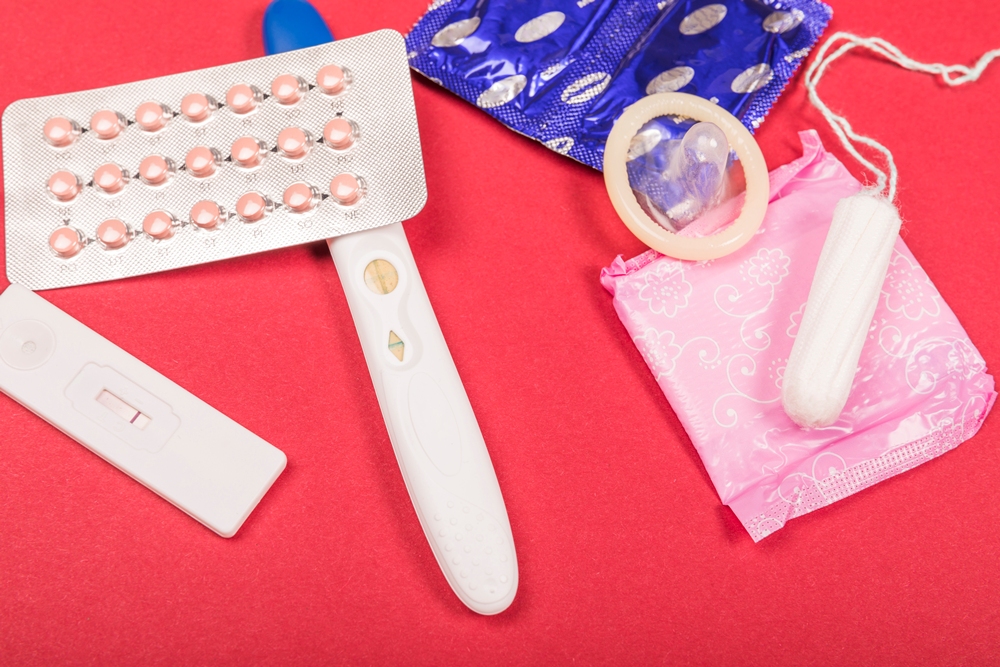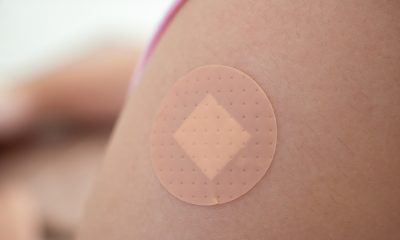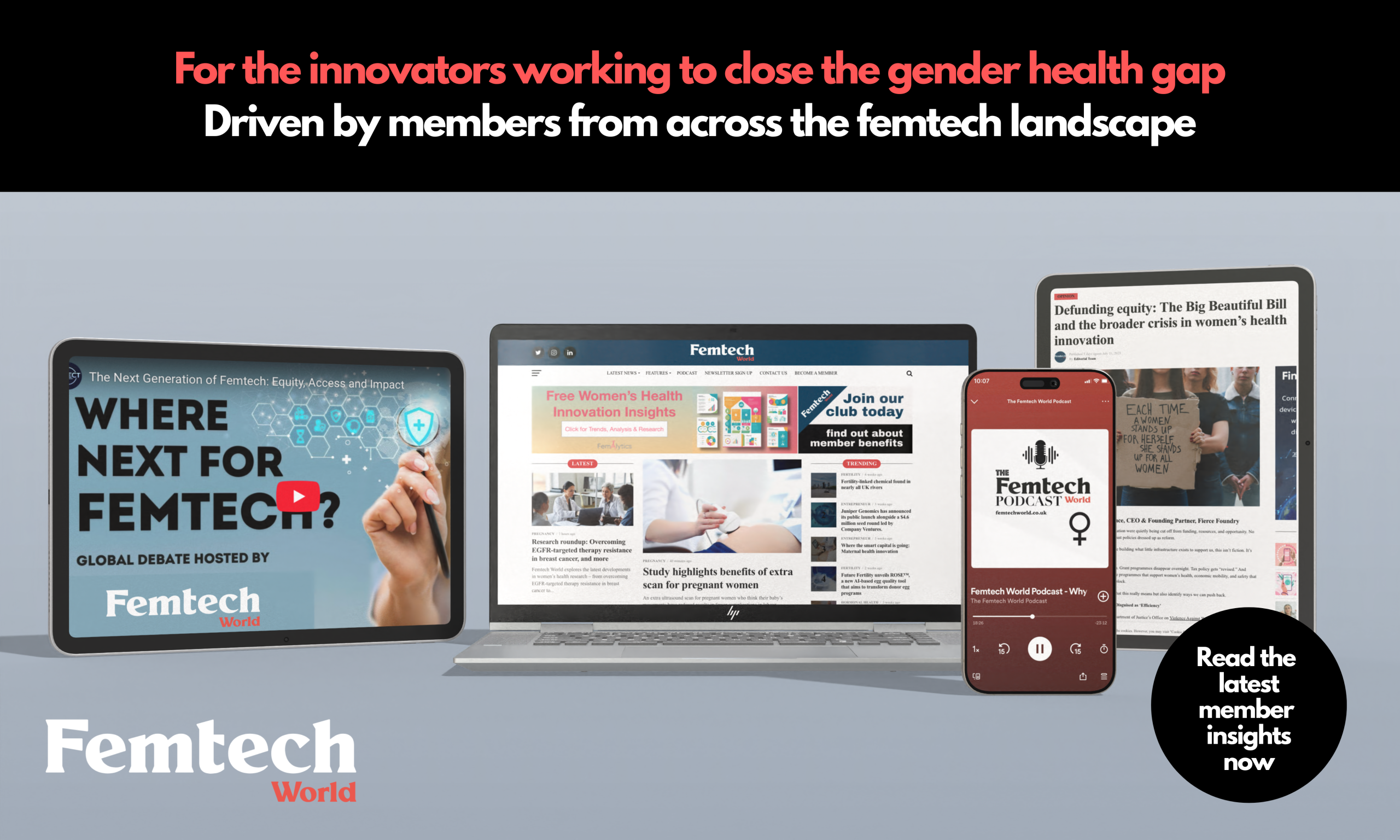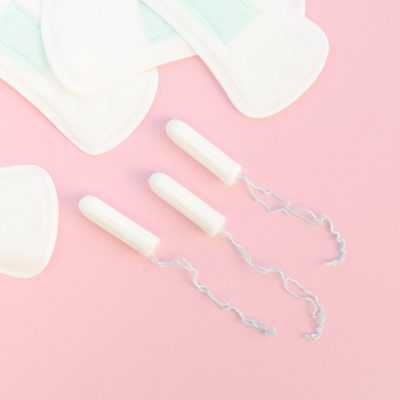Special
‘Overlooked, undervalued and underfunded’- how Flo is tackling inequalities in women’s health
Flo Health has recently become Europe’s first femtech unicorn, raising more than US$200m in funding

Although the world has reached important milestones towards gender parity, there remains much to be done – especially when it comes to the gender health gap. Sue Khan, VP of privacy and data protection officer at Flo Health, tells Femtech World how the company is building a better future for women.
Could you tell us a bit about your background and your current role at Flo?
I started my career about 17 years ago in the telecoms space, first at The Carphone Warehouse and then at the O2 where I stayed for nearly 10 years, and ultimately became the head of data protection and privacy. After that, I spent some time at Hasbro, the entertainment company, where I worked on interesting issues like smart toys, and age appropriate design.
Ultimately, I moved into health tech with my role at Babylon. My time at Babylon opened me up to a whole new world of privacy challenges, including the introduction of AI solutions to traditional healthcare systems to assist with efficiencies globally, with the NHS and in countries like Rwanda, where innovation is really welcomed.
As a privacy lawyer, I thought, it just doesn’t get more interesting and rewarding than protecting health data with the advancement of technologies. I grew so passionate about technology giving affordable and accessible healthcare.
I started wondering if I could focus on something more specific that was close to my heart. I have two daughters, and I’m at a stage in life where perimenopause, or the menopause, is not far off. I was fascinated by femtech as nearly all of the companies and accelerators in the industry were doing such important work.
I followed Flo Health’s success for years. When the opportunity arose, I couldn’t believe my luck and since January 2023, I’ve been the vice president of privacy and data protection officer at Flo Health.
At Flo, my goal is to help women feel informed and in control of their health data by clearly communicating about privacy in simple terms, so they can confidently use Flo without concern.
In my role, I look after the privacy function and manage a team that includes four privacy lawyers, and a privacy manager. I’m responsible for Flo’s framework for policies, procedures, training, risk management and the maintenance of our industry-unique ISO Privacy 27701 certification. I also contribute to product development, providing contextual, nuanced advice while preparing for the future, including for the emergence of new privacy laws and policy decisions globally.
How did you get into women’s health?
I was born in Scotland but moved to Saudi Arabia aged five, due to my parents’ careers as doctors. During the Gulf War, aged 10, my school was evacuated and my sister and I moved to New York City. I moved to London aged 13, where I am currently based with my husband and two daughters.
My dad was a consultant orthopaedic surgeon who dedicated much of his career to the NHS and teaching medicine. I’ve seen him inspire and motivate his medical students (he even taught some of my school friends at Imperial College London). His passion for both healthcare and education is immense and infectious. I always knew his career satisfaction levels were through the roof.
My mum worked as a GP in a local practice in a south-west Saudi town. I would often join her practice, and see how people, especially women from neighbouring Yemen, would come to seek treatment without understanding their bodies.
It was not uncommon for women to seek treatment for pain related to their periods or even pregnancy without knowing much about their reproductive health. It became apparent to me at a young age how important clear communication and education are for the overall health and wellbeing of women.
I also realised through my experiences at my mum’s practice that women need to have access to healthcare and a support system in order to thrive.
My experiences throughout my youth sparked an interest in healthcare that persists today and ultimately drove my career interests to Babylon and now Flo.
How would you describe the impact and importance of your work?
My team and I are dedicated to protecting Flo users’ privacy rights and freedoms, and safeguarding their most intimate health data. We want to help articulate what ‘best in class’ could look like in the femtech space.
In an industry of particular interest to regulators and privacy groups alike, I manage communications with relevant regulators to further promote Flo’s privacy practices and urge the femtech industry to follow suit.

That means maintaining a commitment to delivering a trusted product among varying degrees of privacy expectations and cultures around the world, ensuring privacy has a seat at the table when making key decisions impacting user data, and implementing robust and audit-ready policies, procedures, data maps and training programmes.
What are the most significant challenges in women’s health today?
The two biggest challenges I’d like to highlight are the gender research gap and the access to medically credible information and digital health technologies.
Recent studies have found that women’s health is being overlooked, undervalued, and underfunded leading to poor female health and fertility outcomes for people with periods globally.
It has also been historically overlooked when it comes to scientific research, resulting in limited understanding and stark knowledge gaps.
That’s precisely why closing the gender research gap is embedded within Flo’s mission of building a better future for female health.
Flo’s science team collaborates with world-class medical research institutions to help improve the day-to-day lives of women globally by deepening our understanding of women’s health. Their research covers a broad range of topics, including menstrual literacy on the global scale, women’s health related reproductive conditions, sexual health including female orgasms, pregnancy, perimenopause and menopause.
How is Flo addressing these challenges?
Flo has become a powerful force in democratising access to personalised health information and tackles several key issues:
- Bridging healthcare disparities: Flo’s pro-social programme, which provides free premium access to up to one billion women across 66 countries, with over 17 million subscriptions already donated. Flo is actively working in collaboration with UNFPA to level the playing field in global women’s health.
- Closing the knowledge gap: By providing accurate, accessible information to millions of women, Flo is improving health literacy on a global scale. This is particularly impactful in underserved regions where traditional healthcare systems fall short.
- Driving research and innovation: With its partnerships with world-class institutions, Flo is uniquely positioned to advance women’s health research and drive evidence-based improvements in care.
- Breaking taboos: With its vast user base, Flo is normalising conversations around women’s health, helping to reduce stigma and encourage open dialogue about previously taboo topics.
- Empowering through health information: By enabling 70 million women to track and understand their health patterns, Flo is putting personalised insights directly into the hands of users, fostering proactive health management.
Flo has recently become the first femtech unicorn. What does the unicorn status mean for the company and its users?
This investment significantly strengthens Flo’s position as a leader in the global femtech industry. With our valuation now reaching one billion, Flo joins the elite ranks of femtech unicorns, a status achieved by very few companies in this space.
This milestone not only validates our mission and approach but also underscores the growing recognition of the importance of female health solutions.
In terms of what this means for the company and the broader industry, this investment also reinforces the potential of the femtech market, which is projected to reach US$60bn by 2027. Our success demonstrates that there’s both a critical need and a substantial market for user-centric women’s health solutions.
We’re committed to setting new benchmarks for the industry in terms of user experience, data privacy, and the application of advanced technologies to women’s health. As a unicorn in this space, we’re not just participating in this growth, we’re helping to shape the future of women’s health technology.
Do you feel a greater sense of responsibility to address the gender health gap now that you’ve reached this milestone?
Our mission remains unchanged – closing the gender health gap was just as important prior to us achieving the unicorn status as it is now.
However, the latest investment round unlocks the next growth stage which will propel us closer towards achieving our goal and will enable us to build and launch features to further benefit our users.
We know Flo is looking to expand into new user segments. What should we expect over the coming months?
We will extend our reach to untapped user segments by developing tailored features for women experiencing perimenopause and menopause, and partners of our existing users through our ‘Flo for Partners’ feature.
How do you see femtech evolving over the next five years?
The femtech industry is constantly evolving and full of exciting businesses like Flo, focused on building improvements for female health. We want to see more investment in these organisations! Some continuous evolvement I hope to see includes:
- Increased representation: Women have a spectrum of healthcare needs and concerns. As a woman and as a South Asian, I want to see more focus on underrepresented populations when it comes to health research so that all women can benefit from more nuanced findings that are personally applicable to them.
- Technological and regulatory developments: We will no doubt see the development of AI technologies to advance female health solutions. As a lawyer, I’m particularly interested in seeing legislation develop to support the responsible deployment of such technologies.
- Accessibility: Femtech and education about female health should be accessible to all, regardless of geographical or economic barriers. This includes affordable services and developing appropriate lingual and cultural localisation.
- Holistic views of women’s health: With women’s consent, collaboration and interoperability between apps and healthcare systems can encourage a single view of a person’s health and result in better healthcare outcomes over time.
To receive the Femtech World newsletter, sign up here.
Cancer
HIV research paves way for new ovarian cancer therapies

HIV research has identified a new target for ovarian cancer by selectively blocking a cleft in the retinoblastoma protein that protects tumour-supporting macrophages.
The discovery could make ovarian – and potentially other – cancers more responsive to immunotherapies, treatments that use the body’s immune system to fight disease.
Scientists at the Wistar Institute found that targeting a specific cleft in the retinoblastoma protein removed only tumour-supporting macrophages while sparing those that fight disease.
Macrophages are immune cells that can either attack tumours or shield them from harm.
The work builds on decades of HIV studies led by Dr Luis Montaner, executive vice president of the Wistar Institute and director of its HIV Cure and Viral Diseases Center.
Montaner said: “This target emerged from our work understanding how macrophages survive HIV infection.
“It shows how insights from one field of medicine can inform breakthroughs in another.”
Targeting tumour-protecting macrophages without harming beneficial ones has long been a challenge.
Wistar researchers showed that selectively inhibiting this protein cleft depleted only tumour-supporting macrophages, leaving protective immune cells intact. Animal studies confirmed tumour shrinkage using this approach.
Montaner said: “This is a first-in-kind target against a solid tumour.
“It opens new avenues for therapies that could complement existing immunotherapies.”
The study highlights the value of long-term, cross-disciplinary research. It took more than 10 years from the initial HIV-linked finding to identifying this cancer target.
Next steps include exploring applications in acute myeloid leukaemia, pancreatic cancer and combination therapies.
News
US incineration of contraceptives denies 1.4m African women and girls lifesaving care, NGO says

The US decision to incinerate US$9.7m worth of contraceptives is expected to result in 174,000 unintended pregnancies and 56,000 unsafe abortions across five African countries.
The medical supplies, many of which were not due to expire until between 2027 and 2029, would have supported more than 1.4 million women and girls in the Democratic Republic of Congo, Kenya, Tanzania, Zambia and Mali.
The products had already been manufactured, packaged and prepared for delivery. Around 77 per cent were earmarked for distribution in the five African nations.
The International Planned Parenthood Federation (IPPF), a global healthcare provider and advocate for sexual and reproductive rights, offered to take the contraceptives for redistribution at no cost to US taxpayers. The offer was declined.
IPPF said the decision would deny women and girls in the affected countries access to lifesaving care.
Tanzania will be hardest hit, losing more than 1 million injectable doses and 365,100 implants – small devices inserted under the skin that release hormones to prevent pregnancy.
This amounts to 28 per cent of the country’s total annual contraceptive need.
Dr Bakari, project coordinator at Umati, IPPF’s member association in Tanzania, said: “We are facing a major challenge.
“The impact of the USAID funding cuts has already significantly affected the provision of sexual and reproductive health services in Tanzania, leading to a shortage of contraceptive commodities, especially implants.
“This shortage has directly impacted clients’ choices regarding family planning uptake.”
In Mali, women will lose access to 1.2 million oral contraceptive pills and 95,800 implants, nearly one-quarter of the country’s annual requirement.
In Zambia, 48,400 implants and 295,000 injectable doses will no longer be available. In Kenya, 108,000 women will go without contraceptive implants.
Marie Evelyne Petrus-Barry, IPPF’s Africa regional director, called the move “appalling and extremely wasteful”.
She said: “These lifesaving medical supplies were destined to countries where access to reproductive care is already limited, and in some cases, part of a broader humanitarian response, such as in the DRC.
“The choice to incinerate them is unjustifiable.”
In Kenya, the cuts compound an already strained system.
Nelly Munyasia, executive director of the Reproductive Health Network in Kenya, said stocks of long-term contraceptives had already run out, and warned of further consequences.
She said: “There is a 46 per cent funding gap in Kenya’s national family planning programme,.
“These systemic setbacks come at a time when unmet need for contraception remains high. Nearly one in five girls aged 15 to 19 are already pregnant or has given birth.
“Unsafe abortions remain among the five leading causes of maternal deaths in Kenya.”
Munyasia also warned that health workers’ skills are being eroded and said a lack of contraceptive access would increase maternal deaths as more women seek unsafe abortions.
While Kenya’s 2010 constitution allows abortion when a pregnant person’s life or health is at risk, the 1963 penal code still criminalises the procedure.
As a result, healthcare providers often avoid offering abortion care, even in emergencies.
A US state department spokesperson confirmed last month that the decision to destroy the supplies had been authorised.
Reports indicated the products were to be incinerated in France, prompting the French government to say it was “following the situation closely” following objections from rights and family planning groups.
The state department said the contraceptives could not be sold or donated to “eligible buyers” due to US legal restrictions, which prohibit foreign aid to organisations that provide abortion services, counsel on abortion, or advocate for abortion rights overseas.
Special
Gates foundation pledges $2.5bn to ‘ignored’ women’s health issues

The Gates Foundation will invest US$2.5bn in women’s health research by 2030, it announced on Monday, focusing on conditions from preeclampsia to menopause.
The pledge is around one-third more than the foundation spent on women’s and maternal health research and development over the past five years.
It is also among the first major commitments since Bill Gates said he would give away his US$200bn fortune by 2045.
Gates said: “Women’s health continues to be ignored, underfunded and sidelined. Too many women still die from preventable causes or live in poor health,” said Gates.
“That must change.”
The new funding will support research into under-studied conditions affecting hundreds of millions of women in both high- and low-income countries.
These include preeclampsia – a pregnancy complication that causes high blood pressure – and gestational diabetes, as well as heavy menstrual bleeding, endometriosis and menopause.
Investment will focus on five priority areas: obstetric care and maternal immunisation; maternal health and nutrition; gynaecological and menstrual health; contraceptive innovation; and research into sexually transmitted infections.
The aim is to kickstart research, develop new products, and ensure equitable global access to treatments.
Just one per cent of healthcare research and innovation spending goes to female-specific conditions beyond cancer, according to a 2021 analysis by McKinsey & Co.
Dr Anita Zaidi, the foundation’s head of gender equality, said the field has been held back by data gaps and bias.
She noted that key questions remain unanswered – including how some medicines interact with the uterus.
She told Reuters: “If you look at the literature, there may be only 10 women who’ve been studied, ever.
“We don’t even have the answers to these basic questions.”
Zaidi said the US$2.5bn pledge is a “drop in the bucket” compared to what is needed, and called on governments, philanthropists and the private sector to step in.
-

 News4 weeks ago
News4 weeks agoAI embryo selection tool wins European approval
-

 Opinion2 weeks ago
Opinion2 weeks agoOpinion: Not ‘just stress’ – How hormonal changes affect women’s brain function
-

 News4 weeks ago
News4 weeks agoTestosterone patch shows promise for menopausal women
-

 News3 weeks ago
News3 weeks agoTop 7 drug-free solutions for managing PMS and PMDD in in 2025
-

 Features4 weeks ago
Features4 weeks agoFrom SEO to GEO: How women’s health brands can get found in the age of AI
-

 Menopause4 weeks ago
Menopause4 weeks agoFDA approves new menopause drug to treat hot flashes and night sweats
-

 News4 weeks ago
News4 weeks agoSpain faces protests over mammogram scandal
-

 Menopause4 weeks ago
Menopause4 weeks agoMost midlife women with menopause symptoms don’t seek care, research finds






























3 Comments